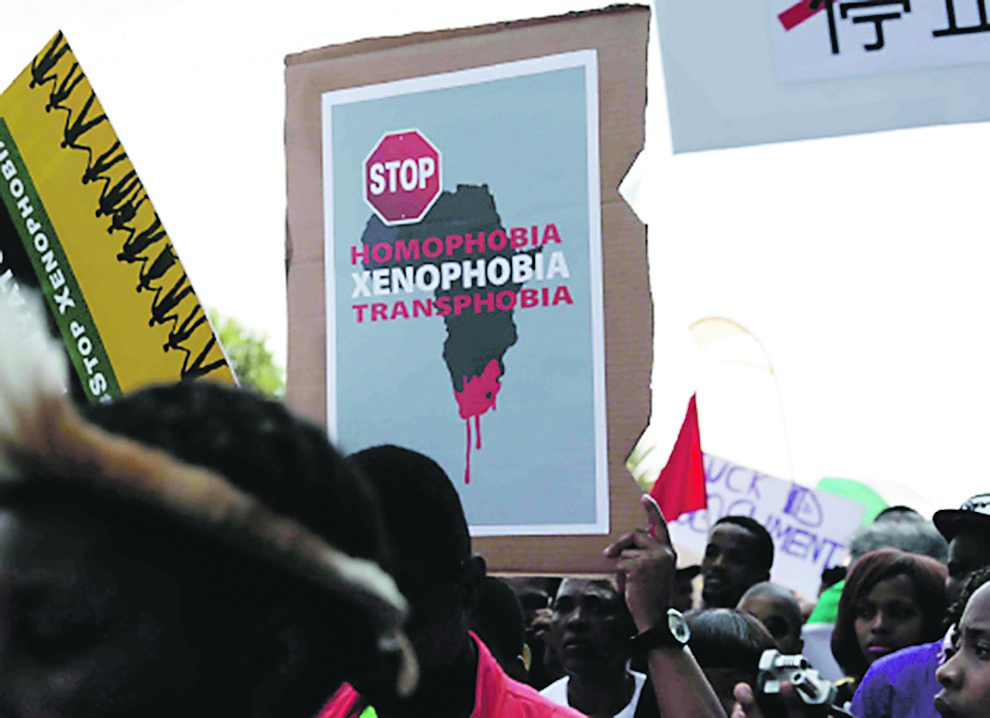
The recent xenophobic attacks in South Africa could cast a shadow over ambitious plans for the African Continental Free Trade Agreement as scores of protocols, rules and technical details still have to be agreed to, say experts.
The overall agreement has already been signed and provides for all the protocols that will exist under the agreement.
The process in terms of which African Union (AU) states will ratify the agreement is under way, said Stellenbosch University Professor Gerhard Erasmus, the founder of the Trade Law Centre.
By the end of July, 27 AU member states had ratified the agreement. Now those countries will have to agree on the details.
The protocols in phase one, which deal with trade in goods, trade in services and dispute resolution, are close to being finalised and are expected to be implemented next year.
But Erasmus said the xenophobic attacks could cause a range of problems for South Africa, including the fact that the negotiating environment may become hostile for South Africa when the free trade area and its implementation is negotiated.
Elizabeth Sidiropoulos, the chief executive of the SA Institute of International Affairs said the damage to South Africa’s image and reputation caused by the latest wave of xenophobic attacks is apparent when one considers that other African states have cancelled sports games and sent aircraft to evacuate citizens, and that their leaders have expressed unhappiness about the situation.
She said this showed that South Africa was not being viewed as favourably as it was 15 years ago.
“Whether we think that’s fair or not, that is the perception,” Sidiropoulos said.
She added that it was clear that South Africa could no longer be complacent about its political and economic role in Africa.
Erasmus said that there were no high-level negotiations at the AU over the free trade agreement at the moment, and he had not heard of any direct bearing that xenophobic attacks may have had on the deal.
The creation of a free trade area in Africa is an ambitious undertaking that seeks to encourage the movement of goods, services, capital and people across the continent.
Many of the rules around the origin of goods and the reduction or abolishment of tariffs are complicated and will still take some time to negotiate.
Erasmus said that phase two of the negotiations, which could begin by next year, will focus on intellectual property, investment and competition.
The negotiations over an investment protocol will have to result in a binding legal document that encourages investment in African economies by African countries, and will have to provide rules for how it will be protected.
This could be difficult if xenophobic attacks are not brought under control.
The DA’s spokesperson on trade and industry, Dean Macpherson, said that, aside from the economic damage, the xenophobic attacks have also damaged South Africa’s image among foreign investors.
This could prove problematic when the round of negotiations about the protection of people, free movement and trade, and investment kicks off.
Sidiropoulos said that establishing value chains in the region was important when establishing a free trade agreement.
Manufacturing networks are created across countries, which means that various products in the value chain are manufactured in African countries instead of being imported from elsewhere.
As a result of South Africa’s relatively strong manufacturing sector, local businesses could play a leading role in establishing such value chains, but negative perceptions about how the country treats immigrants could blow up in our faces, she said.
Trade and Industry Minister Ebrahim Patel recently said on two separate occasions that the African Continental Free Trade Agreement could boost economic growth in South Africa through increased exports to the rest of Africa.
Exports to African countries already support about 250 000 South African job opportunities, he said.
Angelle Kwemo, the founder of Believe in Africa, a nonprofit organisation seeking to advance solutions for Africa, recently wrote an article for the Brookings Institution in the US in which she quotes economist Landry Signé estimating that the consumer and business spending in Africa could reach as much as $6.700 trillion (R97 trillion) by 2030.
The UN Economic Commission for Africa estimated that the free trade agreement had the potential to boost intra-Africa trade by an estimated 52% in 2022.
Currently, intra-Africa trade constitutes about 16% of the continent’s total trade volume.
In the article, Kwemo said that xenophobic attacks in South Africa over the past few years could have an affect on this.
Over the past week, the SA Institute of International Affairs has engaged various think-tanks and organisations about conflict issues.
According to Sidiropoulos, some of the suggestions will be compiled and sent to the department of international affairs to be considered in terms of South Africa’s foreign policy.
Erasmus said that if a free trade area was to be established in Africa, there would have to be respect for rules that would need to be enforced and implemented, and there would have to be mutual trust.




 Publications
Publications
 Partners
Partners








